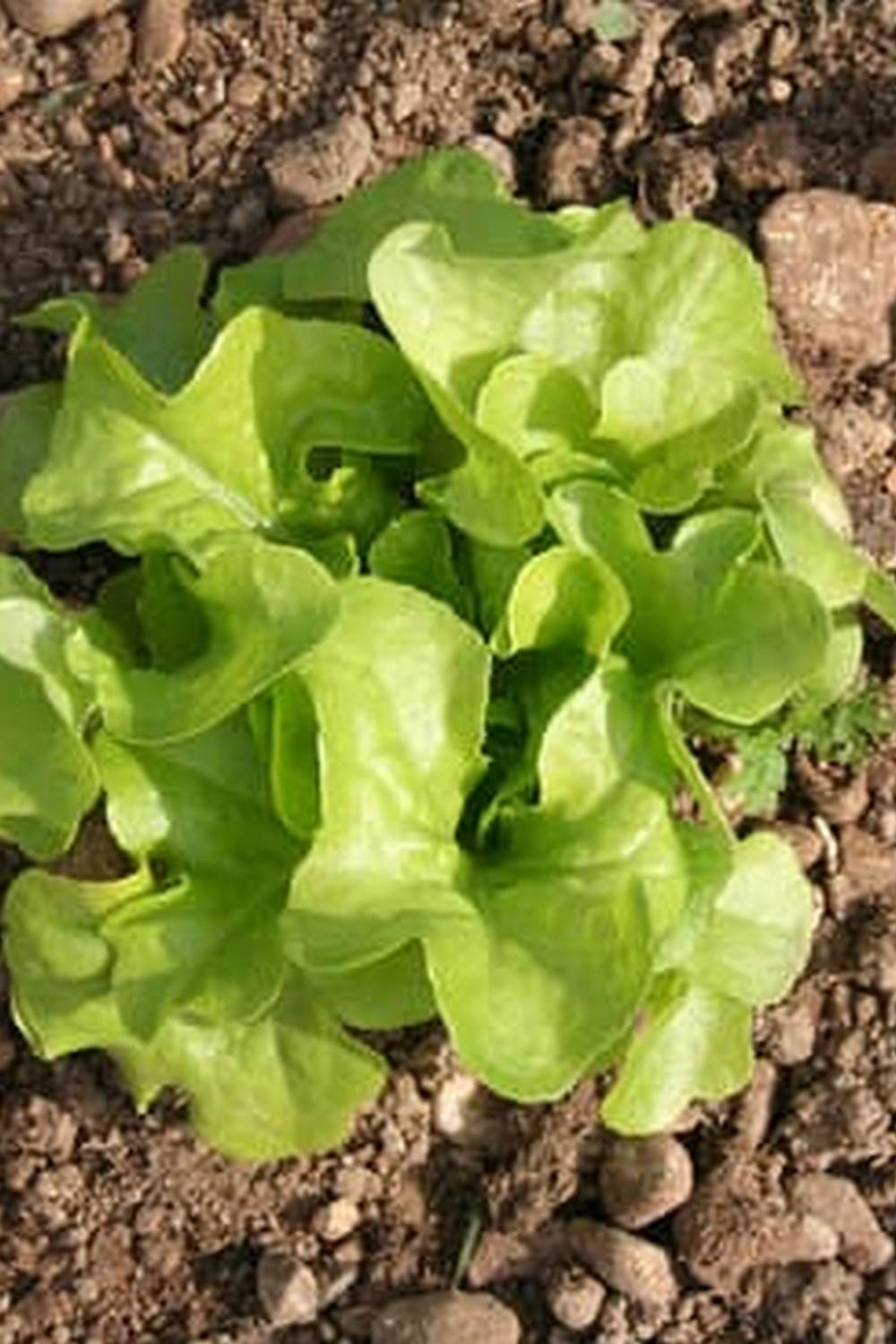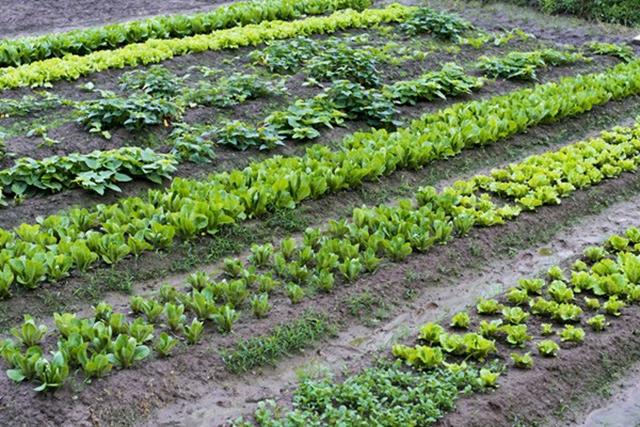Are you interested in learning about organic vegetable gardening basics? Organic gardening is a sustainable and environmentally-friendly practice that involves growing fruits and vegetables without the use of synthetic chemicals or pesticides.
In this article, we will explore the fundamentals of organic vegetable gardening, including the importance of organic gardening, selecting the right location for your garden, choosing the best vegetables to grow, preparing the soil, planting and maintaining your garden, managing pests and diseases organically, as well as harvesting and storing your fresh produce.
Organic vegetable gardening basics entail understanding the significance of cultivating plants in a natural and healthy manner. By avoiding synthetic chemicals and pesticides, organic gardening promotes biodiversity in the ecosystem while providing nutritious and chemical-free produce for consumption. With a focus on sustainability and environmental stewardship, organic gardening practices can have a positive impact on both our health and the planet.
Before diving into organic vegetable gardening, it is crucial to select the right location for your garden. Choosing a sunny spot with well-drained soil is essential for optimal plant growth.
Additionally, consider factors such as proximity to water sources and protection from strong winds to create an ideal environment for your organic vegetables to thrive. By following these basic principles of organic gardening, you can establish a successful garden that not only produces delicious and nutritious vegetables but also contributes to a healthier ecosystem.
Understanding the Importance of Organic Gardening
Organic gardening is an essential practice that emphasizes growing fruits and vegetables without the use of synthetic chemicals or pesticides. Instead, organic gardeners rely on natural methods to maintain the health and vitality of their plants. The importance of organic gardening lies in its benefits not only for the environment but also for the health of those consuming the produce.
One key aspect of organic vegetable gardening basics is the focus on soil health. Organic practices encourage the use of compost, organic fertilizers, and crop rotation to nourish the soil naturally and promote biodiversity. This results in more nutrient-rich soil, which in turn leads to more nutrient-dense and flavorful vegetables.
In addition to promoting healthier soil and produce, organic gardening helps support overall ecosystem health by minimizing pollution from synthetic chemicals, preserving water quality, and promoting biodiversity. By avoiding harmful chemicals that can leach into groundwater or disrupt natural ecosystems, organic gardeners contribute to a more sustainable and environmentally-friendly food system.
| Aspect | Importance |
|---|---|
| Healthier Soil | Organic practices lead to more nutrient-rich soil. |
| Ecosystem Health | Avoiding synthetic chemicals helps preserve water quality and biodiversity. |
Selecting the Right Location for Your Organic Vegetable Garden
When it comes to organic vegetable gardening basics, one of the key factors to consider is selecting the right location for your garden. The success of your organic garden greatly depends on where you choose to plant your vegetables. Here are some important considerations to keep in mind:
- Sunlight: Make sure your vegetable garden receives at least 6-8 hours of sunlight each day. Most vegetables need ample sunlight to thrive and produce a bountiful harvest.
- Water access: It is essential to have easy access to water for irrigation purposes. Consider placing your garden near a water source or installing a drip irrigation system.
- Soil quality: Opt for a location with well-drained soil that is rich in organic matter. Conduct a soil test to determine the pH level and nutrient content of the soil before planting.
In addition to these factors, it is also important to consider proximity to your home for easy access and monitoring, as well as protection from strong winds and potential animal intruders. Taking the time to select the right location for your organic vegetable garden will set you up for success in growing healthy and thriving crops.
Once you have identified the ideal location for your organic vegetable garden based on these considerations, it is time to start preparing the space for planting. Clear out any weeds or debris, loosen up the soil, add compost or other organic matter, and create raised beds or rows according to your planting plan. By taking these initial steps, you are laying the foundation for a successful organic gardening experience that will yield delicious and nutritious vegetables throughout the season.
Choosing the Best Vegetables for Organic Gardening
When it comes to choosing the best vegetables for your organic vegetable garden, there are several factors to consider. One important factor is the climate in your area, as certain vegetables thrive in specific temperatures and seasons.
It is essential to select vegetables that are well-suited to the climate and growing conditions of your region to ensure a successful harvest. Additionally, consider the space you have available in your garden and opt for vegetables that can be grown effectively within that space.
Popular Vegetables for Organic Gardening
Some popular vegetables that are well-suited for organic gardening include tomatoes, peppers, cucumbers, lettuce, carrots, and beans. These vegetables are relatively easy to grow organically and do not require extensive maintenance. Tomatoes, for example, are known for their versatility in gardening and can be grown in containers or traditional garden beds. Peppers also thrive in warm climates and can be a great addition to any organic garden.
Consider Companion Planting
Another important aspect to consider when selecting vegetables for your organic garden is companion planting. Certain vegetables benefit from being planted next to each other as they provide natural pest control or enhance growth. For example, planting tomatoes with basil can help repel pests that typically attack tomato plants. Carrots and onions are another classic combination that work well together when grown side by side.
Plan Your Vegetable Garden Layout
Before planting your chosen vegetables, it is crucial to plan out the layout of your garden. Consider factors such as light exposure, spacing requirements, and potential competition for resources among different plants. By carefully planning the layout of your organic vegetable garden, you can optimize plant growth and ensure a bountiful harvest at the end of the season.
Preparing the Soil for Organic Vegetable Gardening
When it comes to organic vegetable gardening basics, one of the most crucial aspects is preparing the soil. The quality of the soil directly impacts the health and productivity of your plants. To ensure a successful harvest, taking the time to properly prepare your soil is essential.
Testing Your Soil
Before planting any vegetables, it’s important to test the pH level of your soil. Most vegetables thrive in slightly acidic soil with a pH range between 6.0 and 7.0. You can easily test your soil using a home kit or by sending a sample to a local extension service. Once you know the pH level, you can amend your soil as needed to create the optimal growing conditions for your plants.
Amending Your Soil
If your soil test reveals that your pH is too high or too low, you can adjust it by adding amendments such as lime to raise the pH or sulfur to lower it. Additionally, incorporating organic matter like compost, aged manure, or cover crops into your soil can improve its structure and fertility.
These additions provide essential nutrients for your plants and help retain moisture in the soil. Regularly adding organic matter will also promote beneficial microbial activity in the soil, creating a healthy environment for plant roots to thrive.
Mulching Your Soil
After amending your soil, consider mulching around your plants to help retain moisture, suppress weeds, and regulate temperature fluctuations in the soil. Organic mulches such as straw, shredded leaves, or grass clippings break down over time, adding even more nutrients back into the soil.
Remember to replenish mulch regularly throughout the growing season to maintain its effectiveness. By properly preparing and caring for your soil, you are laying a strong foundation for a successful organic vegetable garden filled with nutritious produce for you and your family.
Planting and Maintaining Your Organic Vegetable Garden
Choosing the right vegetables for your organic vegetable garden is essential to ensure a successful and bountiful harvest. When selecting the vegetables to plant, consider your climate, soil type, and available space. Here are some popular vegetables that are well-suited for organic gardening:
- Tomatoes: Easy to grow and versatile in cooking, tomatoes thrive in warm weather and require ample sunlight.
- Carrots: These root vegetables prefer well-drained soil and can be planted early in the season.
- Zucchini: Fast-growing and prolific, zucchinis do well in containers or raised beds with rich soil.
- Spinach: A cool-season crop, spinach is packed with nutrients and can be harvested multiple times throughout the season.
Once you have selected the vegetables to plant, it’s time to focus on maintaining your organic garden. Regular watering, weeding, and mulching are key tasks to keep your plants healthy and thriving. Here are some tips to help you maintain your organic vegetable garden:
- Water consistently: Make sure your plants receive an adequate amount of water, especially during hot weather or dry spells. Consider using a soaker hose or drip irrigation system to minimize water waste.
- Weed regularly: Remove weeds promptly to prevent them from competing with your vegetables for nutrients and sunlight. Mulching can also help suppress weed growth.
- Fertilize naturally: Avoid synthetic fertilizers and opt for organic alternatives such as compost, manure, or seaweed extract. These natural fertilizers provide essential nutrients for healthy plant growth without harmful chemicals.
By following these planting and maintenance tips for your organic vegetable garden, you’ll be on your way to enjoying a bountiful harvest of fresh and nutritious produce while promoting sustainability and environmental health through organic gardening practices.
Managing Pests and Diseases in Your Organic Garden
When it comes to organic vegetable gardening basics, one of the key aspects to consider is managing pests and diseases in your garden. Unlike conventional gardening methods that rely on chemical pesticides and herbicides, organic gardening emphasizes natural approaches to control pests and diseases while maintaining soil health and ecosystem balance.
One important method for pest and disease management in organic vegetable gardening is promoting biodiversity in your garden. By growing a variety of plants, you can attract beneficial insects and wildlife that will help control pest populations naturally. For example, planting flowers such as marigolds can attract predatory insects like ladybugs that feed on aphids, protecting your vegetable plants from infestations.
Another essential practice in managing pests and diseases organically is practicing crop rotation. Rotating crops annually helps prevent the buildup of pests and diseases in the soil, as different plant families have varying susceptibility to common issues. By rotating your vegetables each season, you can reduce the likelihood of certain pests or diseases emerging and maintain a healthy garden ecosystem overall.
Additionally, using companion planting techniques can help deter harmful pests by interplanting certain vegetables with herbs or flowers that repel them. With these strategies in place, you can effectively manage pests and diseases in your organic garden while promoting overall garden health.
Harvesting and Storing Organic Vegetables
When it comes to organic vegetable gardening basics, knowing when and how to harvest your crops at the right time is crucial. Harvesting too early or too late can affect the taste and quality of your produce.
One key aspect is observing the specific harvesting times for each type of vegetable you are growing. For instance, tomatoes should be picked when they are fully ripe on the vine, while leafy greens like lettuce should be harvested before they bolt to prevent bitterness.
After you have successfully harvested your organic vegetables, proper storage is essential to maintain their freshness and quality. Different vegetables have varying storage requirements, but there are some general guidelines to follow. Most vegetables benefit from being stored in a cool, dark place with good air circulation to prevent mold or rotting. Root vegetables like carrots and potatoes should be stored in a cool, humid environment that prevents them from drying out.
Properly storing your organic vegetables not only extends their shelf life but also allows you to enjoy the fruits of your labor for a longer period. Additionally, learning about different preservation methods such as canning, freezing, or pickling can help you enjoy your harvest throughout the year. By mastering the art of harvesting and storing organic vegetables, you can truly maximize the benefits of your organic vegetable garden.
| Vegetable | Ideal Storage Conditions |
|---|---|
| Tomatoes | Room temperature until ripe then in fridge |
| Carrots | Cold, humid environment such as root cellar |
| Lettuce | In refrigerator crisper drawer with damp paper towel |
Conclusion and Tips for Success in Organic Vegetable Gardening
In conclusion, organic vegetable gardening offers numerous benefits for both the environment and our health. By utilizing natural and sustainable practices, we can grow fresh and nutritious produce right in our own backyard. Understanding the importance of organic gardening helps us appreciate the significance of avoiding chemical pesticides and synthetic fertilizers. Choosing the right location with adequate sunlight, selecting suitable vegetables, preparing healthy soil, planting properly, and maintaining the garden are all essential steps in successful organic vegetable gardening.
One key aspect of organic vegetable gardening is managing pests and diseases without resorting to harmful chemicals. Utilizing natural predators, companion planting, and practicing good garden hygiene can help minimize these issues. Additionally, regular monitoring of your plants can help you detect problems early on and take appropriate action. Harvesting your organic vegetables at the peak of their freshness ensures optimal flavor and nutritional value. Proper storage techniques can help preserve the harvest for longer periods.
To achieve success in organic vegetable gardening, it is essential to continuously educate yourself on best practices and techniques. Experimenting with different methods can help you find what works best in your specific garden environment.
Remember that patience and perseverance are key virtues in this journey towards sustainable food production. By following these organic vegetable gardening basics, you can create a thriving garden that will not only provide you with healthy produce but also contribute to a more sustainable future for our planet.
Frequently Asked Questions
How Do You Start an Organic Garden for Beginners?
Starting an organic garden as a beginner involves choosing the right location with adequate sunlight, good soil quality, and access to water. Begin by preparing the soil through composting and planting easy-to-grow vegetables like tomatoes, lettuce, and herbs.
What Are the Rules for Organic Gardening?
Organic gardening follows certain rules to maintain the health of both plants and the environment. This includes using natural methods for pest control, avoiding synthetic chemicals or fertilizers, practicing crop rotation, and enhancing biodiversity in the garden to promote a balanced ecosystem.
What Is the Best Way to Grow Organic Vegetables?
The best way to grow organic vegetables is to focus on maintaining healthy soil through methods like composting, mulching, and using natural fertilizers. Practice companion planting to deter pests naturally and consider using heirloom seeds for better flavor and diversity in your vegetable crops. Regular monitoring of the garden’s health is also essential for success in growing organic vegetables.

If you’re looking to get into vegetable gardening, or are just looking for some tips on how to make your current garden better, then you’ve come to the right place! My name is Ethel and I have been gardening for years. In this blog, I’m going to share with you some of my best tips on how to create a successful vegetable garden.





